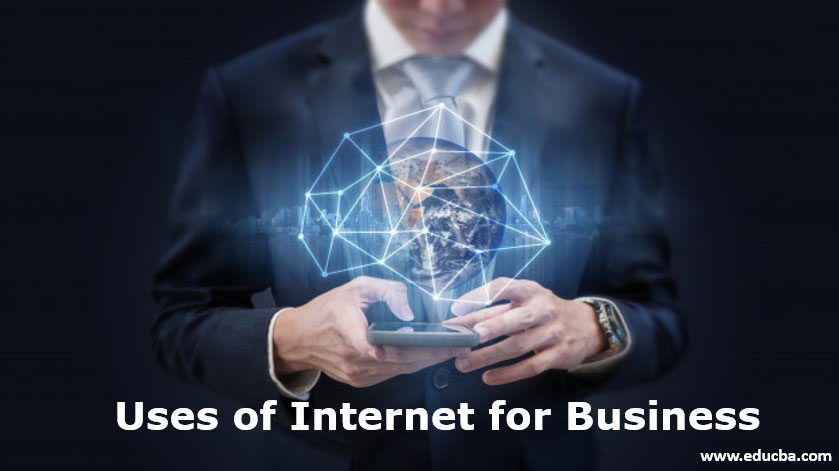
The Scope of Internet in Business Management
The Internet has changed business processes significantly since its inception. From unified communications as a service (UCaaS) to critical cloud-based applications, the Internet has provided new opportunities for businesses to save money and improve collaboration.
The Internet makes communication quick and value economical by providing programs like email, connected calendars and chat services that improve workplace efficiency. It also helps companies promote their products and services to a worldwide audience.
E-commerce
E-commerce, or electronic commerce, involves the trading of goods and services over the internet. It is a fast-growing sector, which allows businesses to connect with customers 24 hours a day, seven days a week. The process of e-commerce is similar to that of a physical store, but it involves back-and-forth communication between the website and its server host.
Ecommerce websites can be hacked, causing businesses to lose valuable customer information and sales. Cybercriminals can steal credit card numbers and other personal information, which is used to make fraudulent purchases. It is therefore important to invest in a secure website.
Many customers enjoy the convenience of e-commerce shopping, which saves them time and effort. It also provides access to a wide range of products that may not be available in traditional stores. Moreover, it can also help consumers compare prices between retailers. Additionally, online shopping allows companies to collect demographic data from customers, which they can use for marketing purposes. This data can be used to improve the user experience and drive more sales. Moreover, it helps businesses build brand awareness and loyalty among customers.
E-government
E-government is an initiative to replace and optimize the paper-based system of public services by utilizing information technology. It enables government agencies to offer an enhanced portfolio of public services to citizens, improve their efficiency, respond to citizen demands for transparency and accountability, and strengthen the bond between them and the private sector. It also provides the public with a fast, convenient and cost-effective way to communicate with their government and business partners.
Moreover, E-government also reduces transaction time for businesses. For example, instead of commuting to the office, businesspeople can do their transactions online. This saves money, time and the environment. The e-government market is rapidly expanding, and this has created many business opportunities for the private sector.
Compared to other programs of organizational reform, e-government is unique in that it has the potential to increase democracy and participation in government without disenfranchising poor or lowly educated people. It has the potential to change the governance culture in developing countries and help them meet their sustainable development goals. However, there is a gap between changing technology and unchanging institutions. Research is needed to identify key determinants of success and build a framework for strategic approaches.
E-health
E health is a growing field that utilizes present-day information and communication technologies to satisfy patients and citizens’ needs as well as to aid healthcare professionals. Moreover, it also facilitates the dissemination of medical knowledge and enhances healthcare delivery worldwide. It is also a great way to empower individuals, and it’s here to stay.
As the demand for ehealth increases, so does the need for effective business management. However, implementing the right business model is not an easy task. It requires a comprehensive understanding of the complexities involved in the industry.
The e-health market ecosystem is composed of customers and citizens, healthcare organizations, service providers, industrial companies, and technology infrastructures that interact to provide value and services. This interaction takes place through the use of technology-mediated platforms for communication and a variety of smart sensor technologies.
The e-health market is expanding to include a diverse range of interventions, including telemedicine, teleradiology, mobile health (mHealth), electronic medical or health records (eMR/eHR), big data, and wearable’s. These technologies are helping to address the so-called digital divide by providing access to healthcare information for people who would otherwise not have it.
E-education
E-education is a type of learning that takes place over the internet. It enables students and teachers to study in a way that is convenient for them. This technology can help them learn new skills and obtain a degree in their own homes. It also helps them improve their efficiency and productivity. This is a great benefit for business management, as it can improve the performance of employees.
During the COVID-19 pandemic, the world is changing at a fast pace and our management education has to keep up with it. It is important to train students and teachers in new digital competencies to meet the challenges of this new era. This includes understanding how to use eLearning tools, learning strategies and digital resources for crisis management (Moser & Billiot, 2021).
Another advantage of E-learning is that it allows you to access it at any time. It is a synchronous or asynchronous method of teaching that can be delivered through chat rooms, forums, wikis, emails, and video-conferencing. There are even some online courses that are completely free of time restrictions. This flexibility makes E-learning a very popular form of learning.
E-communication
E-communication involves the use of electronic devices for business purposes. Its benefits include the ability to communicate with customers and vendors in real time, reducing costs and increasing productivity. E-communication also allows businesses to stay in touch with their customers, which helps them maintain brand value.
The Internet has revolutionized the way businesses operate and manage their operations. It has spawned new technologies and created opportunities for small businesses to grow and thrive. In addition, the Internet enables businesses to reach customers in different countries and regions. It has also changed the business landscape by lowering barriers to entry.
The Internet can be used to conduct business with customers, employees and vendors. It can be used for purchasing products and services, managing customer relations, developing production and supply chains, collaborating with business partners, providing automated employee services, and conducting marketing research. It can also be used for government-related transactions, such as procurements and filing taxes. It is important for small business owners to manage their online operations properly. They should focus on enhancing their company’s online presence to build brand value and gain more clients.


